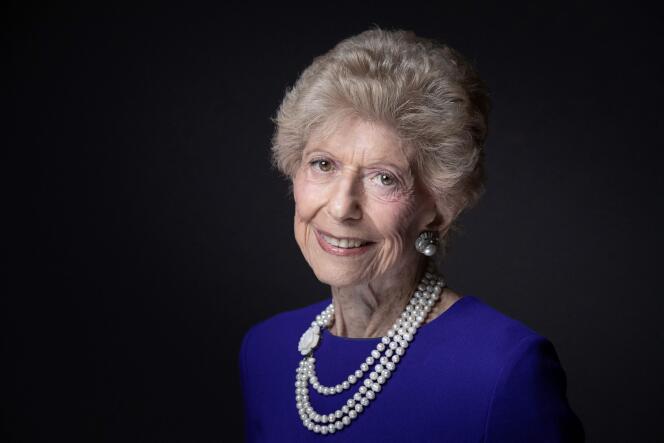


Hélène Carrère d'Encausse, a historian of Tsarist and Soviet Russia and the third female member of the Académie Française, where she was the first woman to be elected permanent secretary in 1999, has died aged 94, her family announced on Saturday, August 5.
Born Hélène Zourabichvili in Paris on July 6, 1929, to a Russian mother and a Georgian father, she arrived at a time when the fortune enjoyed by the Zourabichvili family a few decades earlier had become a mere memory – the fate of emigrants who had fled the Bolshevik revolution.
The family had been great servants to the Romanov empire, as well as eminent scholars. They came from Georgia via Istanbul, and settled in France after the Soviet army invaded the fledgling Democratic Republic of Georgia in the late winter of 1921, less than three years after its birth on the ruins of the Tsarist empire. In 1936, the family expanded with the birth of Nicolas, who studied with Nadia Boulanger and went on to compose for both classical ensembles and the cinema, notably for Otar Iosseliani.
Hélène learned to read at an early age, first French and then Russian, becoming familiar with the literature of both. Her father, Georges, a philosopher with a degree in political economy who became a cab driver before trying his hand at the import-export business, took the family to Bordeaux, where his mastery of five languages proved invaluable. But, working as an interpreter for the Germans during the Occupation, he was kidnapped during the Liberation, disappearing in October 1944 when he was probably killed.
Returning to Paris with her mother, the teenaged Hélène was housed in the Russian Orthodox cathedral on Rue Daru. French neo-fascist journalist Maurice Bardèche, brother-in-law of collaborationist writer Robert Brasillach, met her in February 1950 and became attached to the girl who seemed to share his sense of "anger and revolt". In his book Souvenirs (1993), he wrote: "She had the soul of a young heroine, but at the same time she was realistic, determined, lucid."
Despite this radical portrait, Hélène received a solid education at the Lycée Molière, then at the Institut d'Etudes Politiques de Paris. Born stateless, when she came of age she obtained French nationality. This was a momentous occasion for her and she wanted to take her oath on the flag, so she was appalled to learn that simply by not opposing naturalization before her 21st birthday, she had already become French by default – a fact she remembered when, in 1987, she was asked to sit on the commission for the reform of the nationality code.
You have 71.66% of this article left to read. The rest is for subscribers only.
